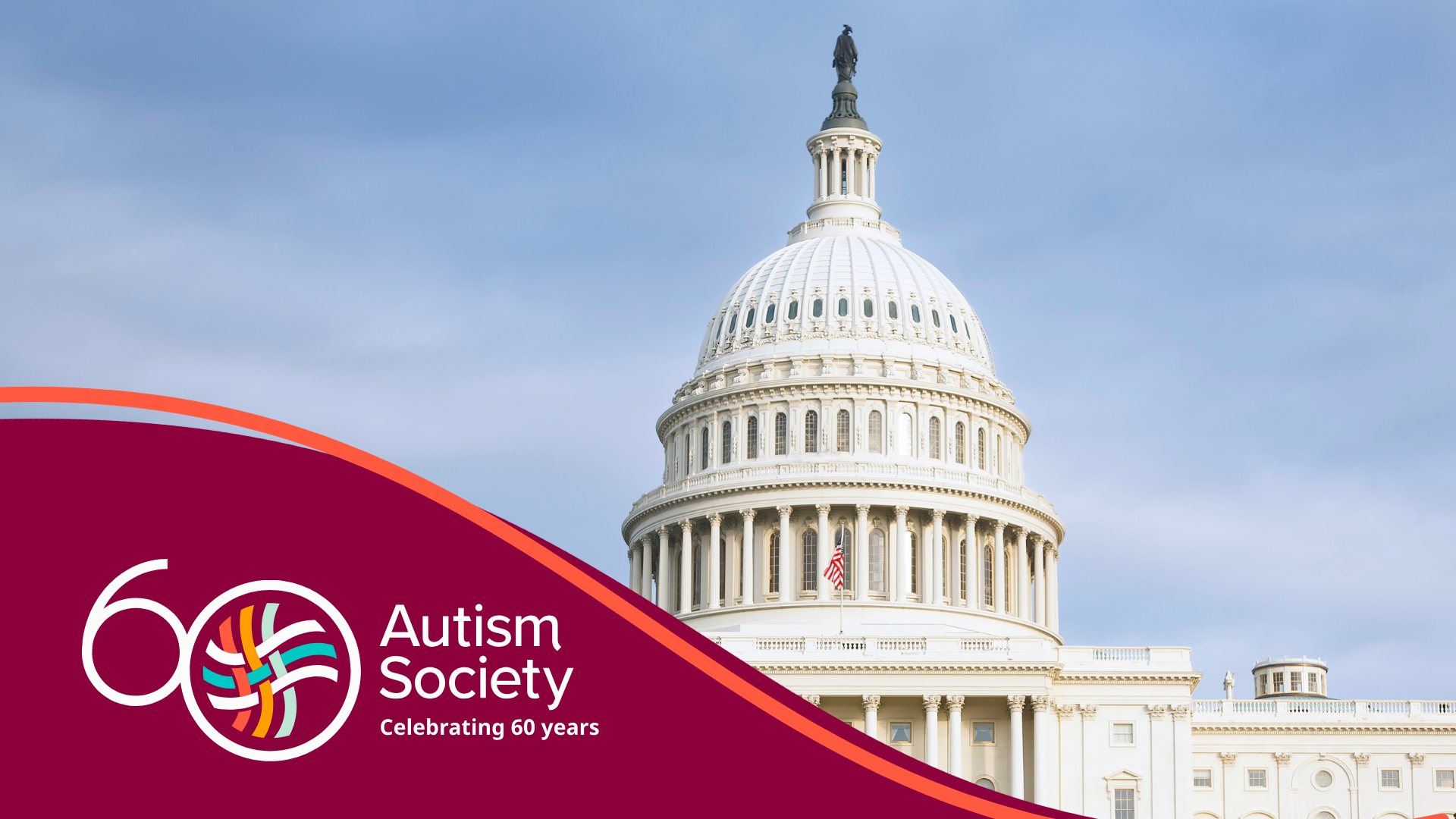
In this edition of Capitol Connection, find updates on the debt ceiling debate and appropriations, the new Interagency Autism Coordinating Committee strategic plan, an Education Department listening session on LRE, and U.S. Supreme Court decisions. In addition, we included an application for a new technical assistance award along with new webinar opportunities.
Congressional Calendar
The House and Senate are back in session this week. Both chambers are still organizing their committees. Watch for updates in upcoming issues of Capitol Connection.
Debt Ceiling
Last week, Treasury Secretary Janet Yellen warned Congress that the debt ceiling will so be reached. This means the federal government will run out of the necessary funds to pay for existing debts. The debt ceiling must be lifted to prevent defaulting on our national debt. Yellen sent a letter to House Speaker McCarthy informing him that she would begin using “extraordinary measures” to pay the debt but urged Congress to take action to protect the full faith and credit of the United States. House Appropriations Committee Ranking Member DeLauro (D-CT) sent a letter to all cabinet secretaries seeking information about the impact on their programs if appropriations levels were cut back to FY22 funding. She asked for responses by February 3rd. The Autism Society will be watching this debate closely to monitor its impact on funding for programs important to people with Autism and their families.
IACC
On January 18th, Joe Joyce, a member of the Autism Society of America’s Board of Directors, delivered oral testimony before the Interagency Autism Coordinating Committee (IACC). In his remarks, using his personal experience as a father and as a national leader, he focused on the crisis in the services system for those with Autism, especially for those with significant functional limitations. His written testimony contains additional resources and recommendations for Congress and the Administration. IACC members also voted to support its new draft Strategic Plan for 2022-2023. In addition to a range of topics, the plan calls for a substantial increase in federal government funding for Autism research to reach $685 million by 2025. The committee suggests the increased funding go to research in evidence-based interventions, lifespan needs, and culturally competent tools and services. Dr. Susan Daniels, the committee chair, expects the final version to be released in April or May.
Housing
The U.S. Department of Housing and Urban Development announced that it is awarding $24.7 million for Section 811 Mainstream voucher program for people with disabilities. The funding goes to 98 local public housing authorities. Over 2,000 families are expected to benefit from the funding. Contact your local housing authority to help ensure that people with Autism benefit from these funds.
CCD Annual Meeting
The Autism Society policy team participated in the Consortium for Constituents with Disabilities (CCD) annual business meeting. The purpose of the meeting is to select new board leaders, organize task forces, and strategize for the coming year. Task Force leaders also provided reports on 2022 accomplishments and plans for 2023. The Autism Society provides leadership on both the Education and DD, Autism, and Family Supports Task Forces.
US Department of Education Listening Session
Stacey Hoaglund, President of the Autism Society of Florida, represented the Autism Society of America in a listening session conducted by the US Department of Education (ED) regarding the implementation of IDEA’s requirement to provide education services in the “least restrictive environment” or LRE. IDEA establishes a presumption that children with disabilities will be educated in classes and settings with their nondisabled peers unless the education of children with disabilities cannot be achieved satisfactorily in those classes and settings with the use of supplementary aids and services. ED asked participants questions related to how LRE is currently being implemented and how it might be improved. Hoaglund suggested providing additional training to parents regarding their rights, training teachers to presume competence, and providing the necessary support and services to students to help them succeed in the classroom and during their years of transition preparation to gain a more meaningful outcome.
21st Century Long-Term Care Caucus
Representatives Annie Kuster (D-NH) and Bryan Steil (R-WI) announced a new caucus entitled the 21st Century Long-Term Care Caucus. The bipartisan caucus will focus on ways to strengthen the long-term care system in America. This action could help bring attention to this important issue.
Supreme Court
Perez v Sturgis
On January 18th, the US Supreme Court heard oral arguments on a special education case entitled Perez v Sturgis Public Schools. This case brings the question of whether individuals who have an IDEA settlement have to exhaust the administrative process before bringing a lawsuit under the Americans with Disabilities Act (ADA). While Miguel Luna Perez was a deaf student in the Sturgis Public Schools system in Michigan, he was assigned an aide who did not know sign language, and his parents were told he would graduate with a certificate of completion after he received all As and Bs throughout his high school career. The family settled with the district under a FAPE (free and appropriate public education) complaint and Miguel was assigned to four years in a school for the deaf. The family then brought a lawsuit citing ADA, leaving the case to go to the Supreme Court. The decision will be released sometime this summer and will have implications on how families can pursue legal actions through IDEA and ADA. See a summary of the case and a recording of the argument.
Cummings v. Keller
The National Council on Disability, an independent advisory agency, released a policy brief on a legal decision impacting people experiencing disability-based discrimination. Cummings v. Premier Rehab Keller PLLC: Implications and Avenues for Reform examines the U.S. Supreme Court decision of April 28th, 2022. In that case, justices held that a plaintiff bringing suit to enforce the anti-discrimination provisions of Section 504 of the Rehabilitation Act of 1973 or Section 1557 of the Patient Protection and Affordable Care Act cannot recover damages for emotional distress resulting from intentional disability-based discrimination. The policy brief analyzes the court’s decision, discusses the challenge of securing injunctive relief when emotional distress damages are not available, describes the impacts of Cummings on people with disabilities, lists the availability of emotional distress damages under state laws, and recommends a legislative fix.
State Advocacy
Technical Assistance on Plain Language
SAR-TAC, the self-advocacy resource and technical assistance center funded by the HHS Administration for Community Living and managed by Self-Advocates Becoming Empowered (SABE) is announcing a new technical assistance opportunity for four state advocacy groups on enhancing plain language or easy-to-read information. The technical assistance will cover two training sessions. The first is for self-advocates and others working on making their information sharing more accessible; the second training is for government agencies and nonprofits. Apply here using this plain language application by February 16th.
Federal Connection
The Coalition on Human Needs is hosting a new twice-monthly Zoom meeting and an email group for State Advocates on Congressional and Federal updates. They are calling the group The Federal Connection. The first meeting was held last week and included remarks from Representative Rosa DeLauro (D-CT). In addition, they previewed their state-by-state data resource. Sign up for the meeting invite and listserv here. They send recordings and all information shared from meetings in an email in case you are unable to attend the Zoom calls.
New Resources on State Paid and Unpaid Leave Policies
New America, a think tank that provides reports to the public, released new explainers on paid and unpaid leave policies in each state. The first is entitled Paid and Unpaid Leave Policies in the United States and provides an overview and data on state use of the Federal Family and Medical Leave Act (FMLA). The second is titled Paid Leave Benefits and Funding in the United States and offers a more specific overview of programs in each state related to benefits and payroll contributions. See also, a new Washington Post article about bipartisan efforts to pass paid leave legislation.
Social Security Benefits and ABLE Accounts Webinar
The National Association of State Treasurers is holding a webinar on ABLE Accounts and Social Security benefits on Wednesday, February 22nd at 1:00 pm ET. The webinar will feature guest speakers from the Social Security Administration. You can register for free through this link. Topics covered include general knowledge about the benefits of owning an ABLE Account and the new ABLE Age Adjustment Act; knowledge of the relationship between ABLE Accounts and Social Security Disability Benefits; understanding of ABLE-related information that must be provided to SSA; and resources on SSA benefits and ABLE Accounts.
Disability Policy Seminar
The annual Disability Policy Seminar, originally scheduled for the end of March, has been postponed due to unforeseen circumstances with the hotel. Details about a new date and event agenda will be coming soon.
Share:




